#Ionic Mobile Apps
Explore tagged Tumblr posts
Text
Benefits Of Ionic Mobile Application Development for businesses in Florida
Mobile applications have become an essential part of modern business strategy. As technology continues to evolve, businesses in Florida need to keep up with the changing market trends to stay competitive. Ionic mobile application development Florida is a popular choice for businesses looking to develop mobile apps. In this blog post, we will discuss the benefits of Ionic mobile application development for businesses in Florida.
Cross-Platform Compatibility
Ionic mobile application development offers cross-platform compatibility, which means that the same codebase can be used to create applications that work on both Android and iOS devices. This allows businesses in Florida to target a wider audience with their mobile applications.
Quick Development Process
Ionic mobile application development offers a quick development process, which means that businesses in Florida can get their mobile applications to market faster. The development process is faster because it uses a single codebase, and the app can be tested on multiple platforms simultaneously.
Cost-Effective
Ionic mobile application development is a cost-effective solution for businesses in Florida. As the same codebase is used for both Android and iOS devices, the development costs are significantly reduced, and businesses can get a mobile application to market quickly.
Rich User Interface
Ionic mobile application development offers a rich user interface, which means that businesses in Florida can provide a seamless user experience to their customers. The user interface is based on AngularJS, which is a powerful JavaScript framework, and this allows developers to create visually appealing and engaging applications.
Access to Native Features
Ionic mobile application development allows access to native features such as the camera, GPS, and accelerometer. This means that businesses in Florida can develop mobile applications that have the same capabilities as native applications.
Community Support
Ionic mobile application development has a large community of developers and enthusiasts, which means that businesses in Florida can access a wealth of knowledge and resources. This community support ensures that businesses can stay up-to-date with the latest trends and best practices in mobile application development.
Easy Maintenance
Ionic mobile application development offers easy maintenance, which means that businesses in Florida can update their applications quickly and efficiently. As the same codebase is used for both Android and iOS devices, updates can be rolled out simultaneously, saving time and resources.
In conclusion, LotzAp Solutions is the Ionic mobile application development company in Florida that offers several benefits for businesses in Florida. It is a cost-effective solution that offers cross-platform compatibility, a quick development process, rich user interface, access to native features, community support, and easy maintenance. With these benefits, businesses in Florida can create engaging and effective mobile applications that cater to the needs of their customers.
2 notes
·
View notes
Text
Unlock Mobile Success with Xamarin, React Native, and Ionic App Development Services by Hidden Brains
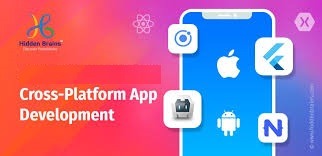
In today’s fast-paced digital world, businesses are constantly looking for efficient ways to develop high-quality, cross-platform mobile apps that resonate with users. Hidden Brains, a leading Xamarin mobile app development company in India, offers robust solutions tailored to business needs. With services spanning across frameworks like Xamarin, React Native, and Ionic, Hidden Brains provides dedicated developers to help transform your app ideas into reality.
Why Choose Hidden Brains for Cross-Platform Mobile App Development?
Choosing the right technology stack is crucial for app success. With Hidden Brains, you get access to expert developers who excel in building reliable and scalable mobile applications. Whether you’re looking to hire Xamarin developers in India, hire dedicated React Native developers, or hire Ionic app developers in India, Hidden Brains has got you covered.
Benefits of Cross-Platform App Development with Hidden Brains
Cost-Effective SolutionsDeveloping apps for multiple platforms can be expensive. Hidden Brains utilizes cross-platform frameworks like Xamarin, React Native, and Ionic to deliver cost-effective solutions, ensuring your app performs seamlessly across devices.
Faster Time-to-MarketIn a competitive market, timing is everything. By choosing Hidden Brains, a trusted React Native app development company in India, you get a faster time-to-market. Our developers use single codebases across platforms to expedite the development process.
Access to Skilled DevelopersHidden Brains provides a pool of talented developers who understand the nuances of each platform. When you hire dedicated React Native developers or hire Ionic app developers in India, you are guaranteed expertise and quality.
Xamarin Mobile App Development for Versatility
Xamarin is a popular choice for businesses that want native-like performance in a cross-platform application. As a premier Xamarin mobile app development company in India, Hidden Brains delivers secure, high-performance apps that enhance user experience.
Native User Experience: Xamarin allows near-native performance, making it ideal for apps requiring high-quality visuals.
Shared Codebase: The framework uses C# and .NET, reducing development time and enabling updates with ease.
Seamless Integration: Xamarin apps can integrate smoothly with various APIs, making them suitable for enterprise-level applications.
Hire Xamarin Developers in India: Why It’s the Right Choice
When you hire Xamarin developers in India through Hidden Brains, you access expert developers skilled in this versatile framework. Here’s why you should consider Xamarin for your next project:
Reduced Cost: Xamarin uses a single codebase, saving development costs.
Faster Development: Speed up your launch with Xamarin's streamlined approach.
Quality Assurance: Hidden Brains ensures that Xamarin apps are thoroughly tested for bugs and performance.
React Native App Development: Perfect for High-Performance Apps
React Native is a popular choice for companies aiming to build dynamic and high-performance applications. Hidden Brains, a reliable React Native app development company in India, provides robust solutions that guarantee user satisfaction and engagement.
Reusable Code: React Native allows code to be reused across platforms, reducing time and costs.
Third-Party Integrations: Enhance app functionality with plugins and APIs.
Efficient Updates: React Native’s “hot reloading” feature allows developers to make updates instantly, improving the development experience.
Hire Dedicated React Native Developers for Custom Solutions
When you hire dedicated React Native developers from Hidden Brains, you get experts focused on delivering customized solutions that align with your business goals.
Tailored to Your Needs: Our React Native developers adapt to your business needs, providing custom features and functionalities.
Timely Delivery: With dedicated resources, you get quicker turnaround times.
Seamless Communication: Our dedicated developers work closely with you, ensuring that your vision is at the forefront of development.
Ionic App Development for Lightweight, Web-Based Solutions
Ionic is ideal for building lightweight, high-performance mobile apps. Hidden Brains is a leading Ionic app development company in India, providing cost-effective and efficient solutions.
Browser-Based Development: Ionic uses web technologies like HTML, CSS, and JavaScript, making it suitable for web-based mobile apps.
Smooth UI/UX: Ionic’s pre-built components and themes streamline the UI/UX design process.
High Performance: Ionic’s integration with Cordova and Capacitor enables access to native device features, boosting app functionality.
Hire Ionic App Developers in India for Cost-Effective Solutions
Looking to build an app on a budget? When you hire Ionic app developers in India through Hidden Brains, you can achieve powerful results without breaking the bank.
Efficient Development: Our Ionic developers leverage Ionic’s modular components, reducing development time and costs.
User-Centric Design: Ionic enables a sleek user experience that resonates with your target audience.
Cross-Platform Compatibility: Ionic apps work seamlessly across multiple devices, giving you a wider reach.
Why Hire from Hidden Brains?
Choosing Hidden Brains means partnering with a team committed to delivering outstanding mobile solutions. Here’s what makes Hidden Brains the preferred choice:
Proven ExpertiseWith a track record of successful projects, Hidden Brains brings expertise to each project, ensuring high-quality results.
Transparency and CommunicationWe keep you informed at every stage of the project, allowing seamless collaboration and transparency.
Scalable SolutionsOur solutions are designed to grow with your business. Whether it’s a small-scale project or a large enterprise app, we adapt to meet your evolving needs.
Conclusion
Whether you’re looking to hire Xamarin developers in India, hire dedicated React Native developers, or hire Ionic app developers in India, Hidden Brains offers the expertise, cost-efficiency, and quality needed to make your project successful. Our services help businesses achieve their goals by delivering high-performing, cross-platform applications that resonate with users. Unlock your mobile app’s potential with Hidden Brains and stay ahead in the competitive digital landscape.
#xamarin mobile app development company india#hire xamarin developers in india#react native app development company india#hire dedicated react native developer#hire ionic app developer india
0 notes
Text

Top Ionic Developers for Hire | Elevate Your Mobile App | AIS Technolabs
Ready to develop a cutting-edge mobile app? HIre our Ionic developers experts in crafting smooth, cross-platform experiences that engage users and perform flawlessly. Hire our talented developers today and bring your vision to life with expert guidance and support.
#ionic developers#Mobile App Development#Cross Platform Apps#hire developers#ionicframework#app development#techtalent#mobiledevelopment#Ionic#App Development Services
0 notes
Text
Frontend Development for Mobile Apps with Frameworks like Ionic or React Native
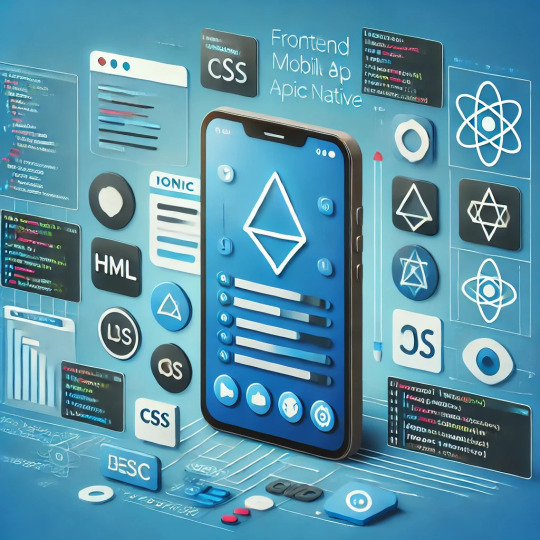
In today's fast-paced digital world, businesses are increasingly seeking efficient ways to build high-quality mobile apps. Frontend development plays a crucial role in creating responsive and user-friendly mobile applications. Two popular frameworks for mobile app frontend development are Ionic and React Native. Both frameworks allow developers to build cross-platform apps, reducing development time and cost. In this article, we’ll explore how these frameworks work and the benefits they offer for mobile app development.
What is Frontend Development in Mobile Apps?
Frontend development focuses on the user interface (UI) and user experience (UX) of an application. For mobile apps, this involves creating interactive elements like buttons, menus, and layouts that users interact with. With the increasing demand for mobile apps, businesses need to deliver seamless user experiences across different platforms, including iOS and Android. This is where frameworks like Ionic and React Native come in.
Why Choose Cross-Platform Frameworks for Mobile App Development?
Building separate apps for iOS and Android can be time-consuming and expensive. Cross-platform frameworks like Ionic and React Native allow developers to write a single codebase that works on both platforms. This not only speeds up the development process but also reduces maintenance efforts. Here are the benefits of using these frameworks:
Cost Efficiency: With a single codebase, companies save money on development and updates.
Faster Development: Developers can launch apps quicker by writing code once and deploying it across platforms.
Consistent UI/UX: Ensures a unified look and feel on both iOS and Android devices.
Ionic Framework for Mobile App Development
Ionic is an open-source framework that uses web technologies like HTML, CSS, and JavaScript to build mobile apps. It's built on top of Angular and integrates well with Apache Cordova, enabling access to native device features like the camera and GPS.
Key Features of Ionic:
Cross-Platform Compatibility: Build apps that run smoothly on both iOS and Android.
Pre-Built UI Components: Ionic offers a wide range of ready-made components, speeding up the design process.
Native Plugin Integration: Access native device functionalities through plugins, without writing native code.
Web View: Apps are rendered in a web view, making it easier for web developers to transition to mobile app development.
Advantages of Ionic:
Perfect for developers familiar with web technologies.
Large community support with extensive documentation.
Fast prototyping for MVP (Minimum Viable Product) development.
React Native for Mobile App Development
React Native, developed by Facebook, is another powerful framework for building cross-platform mobile apps. Unlike Ionic, which uses web technologies, React Native allows developers to write native code for both platforms using JavaScript. This provides better performance compared to web-view-based frameworks.
Key Features of React Native:
Native Components: React Native renders real native components, ensuring faster performance.
Hot Reloading: Developers can instantly see changes without recompiling the entire app.
JavaScript and React: Leverages JavaScript and the popular React library, making it easier for web developers to adopt.
Third-Party Plugins: React Native has a rich ecosystem of third-party plugins for extended functionality.
Advantages of React Native:
Near-native performance for both iOS and Android apps.
Reusable components across platforms.
Large developer community and regular updates from Facebook.
Ionic vs React Native: Which One to Choose?
Choosing between Ionic and React Native depends on the specific needs of your project. Here are some points to consider:
Performance: If performance is critical and you need a near-native feel, React Native is the better option.
Development Speed: For rapid prototyping and building MVPs, Ionic is faster due to its pre-built UI components and web-based architecture.
Familiarity with Technologies: If your team is experienced with Angular, Ionic is an easier choice. If they are more familiar with JavaScript and React, then React Native would be the better option.
The Future of Mobile Frontend Development
The demand for cross-platform mobile apps is growing, and frameworks like Ionic and React Native are at the forefront of this trend. As technology evolves, these frameworks continue to improve, offering better performance, more features, and easier integrations with backend systems. The future of frontend mobile development lies in the ability to create high-performance, cost-effective, and user-friendly apps that work seamlessly across all devices.
Conclusion
Both Ionic and React Native are powerful tools for frontend mobile app development. Choosing the right framework depends on your project’s goals, timeline, and the expertise of your development team. If you're looking to develop a mobile app that offers fast performance, cost efficiency, and a seamless user experience, either of these frameworks can be a great choice. Explore both options and see which fits your needs best for building high-quality mobile apps.
#Frontend mobile app development#Ionic framework for mobile apps#React Native for cross-platform apps#Cross-platform mobile app development#Mobile app frameworks#JavaScript for mobile apps#Ionic vs React Native#Mobile UI/UX development#ahextechnologies#reactnative#ionic
0 notes
Text
Boost Your Ionic App’s Performance: Top Optimization Tips
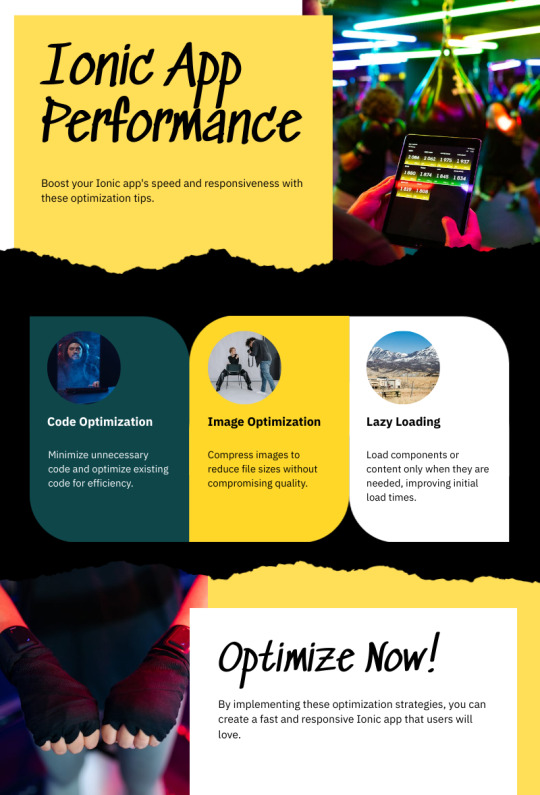
Optimizing your Ionic app for maximum performance is crucial to ensure a smooth user experience. Start by minimizing your app's initial load time through lazy loading, which loads components only when needed. Use Ahead-of-Time (AOT) compilation to reduce the size of your app and improve its startup speed.
Optimize images and use compressed formats like WebP to save bandwidth. Leverage caching strategies and service workers to provide offline capabilities and faster subsequent loads.
Regularly test your app’s performance using tools like Lighthouse and implement feedback. Finally, keep your app’s dependencies updated to benefit from the latest performance improvements and security patches.
For more Ionic Mobile App Development Services, click here.
0 notes
Text
Ionic Mobile App Development Company
EitBiz excels in ionic mobile app development company, creating dynamic, high-quality apps that enhance user engagement and performance. Let us transform your ideas into powerful mobile solutions with our expert team.
0 notes
Text
Innovative Features of Ionic for Modern App Development

In the competitive world of mobile app development, Ionic app development service stands out as a powerful and versatile framework. It offers many innovative features that cater to the needs of modern app developers. From its open-source nature to its robust tools, Ionic has become a go-to choice for developers aiming to create high-quality, cross-platform mobile applications. This article delves into the cutting-edge features of Ionic and explores why it is a preferred choice for modern app development.
What is Ionic?
Ionic is a free, open-source framework that creates high-quality mobile and desktop applications using web technologies like HTML, CSS, and JavaScript. With its strong emphasis on performance, simplicity, and scalability, Ionic allows developers to create robust applications that run smoothly across multiple platforms, including iOS, Android, and the web.
Benefits of Using Ionic for App Development
Cross-Platform Compatibility
One of the standout features of Ionic is its cross-platform compatibility. Developers can write code once and deploy it across various platforms without significant changes. This saves time and reduces the cost associated with maintaining separate codebases for different platforms.
Open-Source Framework
Being an open-source framework, Ionic is free to use and has a large community of developers contributing to its continuous improvement. This framework gives developers access to numerous resources, plugins, and support, simplifying and enhancing the development process.
Powerful CLI
The Ionic Command Line Interface (CLI) is a powerful tool simplifying various development tasks. From creating new projects to building and deploying apps, the CLI provides a seamless workflow that enhances productivity and streamlines development.
Rich UI Components
Ionic comes with a rich library of pre-built UI components that are designed to look and feel native on all major platforms. These components are highly customizable, allowing developers to create visually appealing and user-friendly interfaces with ease.
Integration with Angular
Ionic integrates seamlessly with Angular, one of the most popular front-end frameworks. This integration leverages Angular's robust features, such as two-way data binding and dependency injection, to build dynamic and responsive applications.
Native Plugin Support
With Ionic’s extensive collection of native plugins, developers can easily access device features such as the camera, GPS, and fingerprint sensor. This allows for the creation of feature-rich applications that provide a native-like experience to users.
Progressive Web Apps (PWA) Support
Ionic’s support for Progressive Web Apps (PWA) enables developers to build apps that can be accessed through web browsers while providing a native app-like experience. PWAs are known for their fast loading times, offline capabilities, and push notifications, making them an attractive option for businesses.
Adaptive Styling
Ionic's adaptive styling ensures that apps look and feel consistent across different platforms. The framework automatically adjusts the UI components to match the platform’s guidelines, providing users with a familiar and intuitive experience.
Performance Optimization
Ionic is built with performance in mind. It uses a combination of native and web technologies to ensure that apps run smoothly and efficiently. The framework’s performance optimization techniques, such as hardware-accelerated transitions and preloading, contribute to a superior user experience.
Community and Support
The Ionic community is one of its greatest strengths. Developers benefit from a wide range of resources, such as forums, tutorials, and comprehensive documentation. This active community ensures that any issues encountered during development can be quickly resolved, making the development process more efficient.
Implementing Ionic in App Development
Setting Up Ionic
To get started with Ionic, developers need to install Node.js and the Ionic CLI. Once installed, creating a new project is as simple as running a few commands in the terminal.
npm install -g @ionic/cli
ionic start myApp blank
cd myApp
ionic serve
Building a Simple App
Ionic provides a straightforward structure for building apps. Developers can create pages, components, and services using the CLI and integrate them seamlessly to build a functional app. Here is an example of how to create a simple page in Ionic:
ionic generate page Home
Integrating Plugins
Ionic’s native plugin support allows developers to integrate various device features into their apps. For instance, adding camera functionality can be done using the following command:
ionic cordova plugin add cordova-plugin-camera
npm install @ionic-native/camera
Testing and Deployment
Ionic offers various tools for testing and deploying applications across multiple platforms. The Ionic DevApp allows developers to test their apps on real devices without the need for complex setup. Once the app is ready, it can be deployed to app stores or hosted as a PWA.
Conclusion
In the rapidly evolving world of mobile app development, IONIC app development service offers a comprehensive solution that caters to the needs of modern developers. Its innovative features, such as cross-platform compatibility, powerful CLI, rich UI components, and native plugin support, make it a top choice for building high-quality applications. By leveraging Ionic, developers can create robust, scalable, and user-friendly apps that stand out in the competitive market.
FAQs
What is Ionic?
Ionic is an open-source framework for building high-quality mobile and desktop applications using web technologies like HTML, CSS, and JavaScript.
How does Ionic ensure cross-platform compatibility?
Ionic allows developers to write code once and deploy it across various platforms, including iOS, Android, and the web, without significant changes.
What are some key features of Ionic?
Key features of Ionic include cross-platform compatibility, powerful CLI, rich UI components, integration with Angular, native plugin support, and PWA support.
How can I get started with Ionic?
To get started with Ionic, you need to install Node.js and the Ionic CLI. You can then create a new project and start building your app using the provided tools and resources.
Why should I choose Ionic for app development?
Ionic offers numerous benefits, including cross-platform compatibility, cost-efficiency, performance optimization, and a supportive community, making it an ideal choice for modern app development.
#Innovative Ionic features for app developers#Benefits of using Ionic in modern app development#Top new features in Ionic framework#How Ionic enhances mobile app development#Cutting-edge tools in the Ionic framework#Ionic features for efficient app creation#Why choose Ionic for your next app project#Exploring Ionic's latest app development features#Advanced app development with Ionic framework#Modern app development techniques using Ionic
1 note
·
View note
Text
Best Frameworks for Cross-Platform App Development
What is a cross-platform app development?
Cross-platform app development as the name suggests, is a method which enables developers to build mobile apps for multiple operating systems, such as iOS and Android, from a single code base. These apps are platform-agnostic, meaning they can be used regardless of the OS powering the mobile device.
This is in contrast to native app development, which requires different codebases for each platform. By simplifying the development process, it saves time, effort, and cost, which appeals to companies that want to reach a broader audience with their mobile offerings. It also ensures a consistent user experience across devices and platforms, making it a more efficient way to develop applications.
What is a cross-platform app development framework?
A cross-platform app development framework is a dedicated toolkit that allows developers to build mobile applications for various operating systems using just one codebase.
Instead of writing separate code for each kind, you can use a cross-platform development framework that keeps development costs low. Because cross-platform apps may run on multiple devices, it's a great method to reach a wider audience. Nowadays, almost all other strategies employ a cross-platform approach.
A cross-platform strategy is now widely used by every other startup and well-known large company. It ensures a consistent user experience across all platforms, which aids in their effective problem-solving when developing mobile applications.
Best Cross-Platform App Development Frameworks
Flutter
Google's Flutter, an open-source UI toolkit, was officially released in December 2018 and has since become a leading multi-platform technology due to its single codebase approach, enabling seamless creation of natively compiled applications across platforms. If you're looking to hire Flutter developers, they can leverage this powerful framework.
Ionic
Ionic, launched in 2013, is a free, open-source framework for creating cross-platform apps. Its mobile SDK allows developers to write code once and use it on Windows, iOS, and Android. With new tools and features added over time, Ionic has become a popular choice for Android and iOS mobile app development. Companies often hire Ionic developers to take advantage of this versatile framework.
React Native
Introduced by Facebook in 2015, React Native is an open-source framework that allows mobile engineers to build hybrid native/cross-platform apps using JavaScript. It offers access to third-party UI libraries with ready-to-use components and enables apps for Android and iOS. Companies frequently hire React Native developers to leverage its time-saving capabilities and immediate code changes via Fast Refresh.
Xamarin
Developed by Microsoft in 2011, Xamarin is a framework that allows developers to share up to 90% of their code across major platforms. With over 1.4 million developers, it's easy to hire Xamarin developers familiar with this technology. Its native-friendly interface and controls simplify app creation, making Xamarin a key aspect of cross-platform mobile development.
Node.js
Node.js, created in 2009, is an open-source framework primarily used for server-side and network application development. Built on Google's V8 JavaScript Engine, it offers a powerful runtime environment and a rich library of JavaScript modules. Its non-blocking, event-driven architecture and extensive NPM ecosystem make it a popular choice.
Unity
Unity is a popular mobile app creator, known for its user-friendly interface and effectiveness. It's versatile for animation, architectural design, and movie scenes. Unity's drag-and-drop functionality allows users to create elements without advanced coding skills, simplifying app and game development for everyone, including non-coding experts.
Sencha Touch
Sencha Touch is a web-based cross-platform app framework known for its efficiency and reliability in creating reliable UI components and libraries. Sencha Ext JS is a cross-platform framework for creating HTML5 apps for desktops, tablets, and mobiles, using the Ext JS JavaScript library. It is particularly useful for data-rich business apps and real-time web applications.
Firebase
Firebase, an independent company founded in 2011 and acquired by Google in 2014, is a popular Backend-as-a-Service (BaaS) platform with features like real-time database, authentication, cloud storage, hosting, and machine learning. It is a popular cross-platform app development framework, offering services and tools for quick application development, deployment, and management.
NativeScript
NativeScript is an open-source framework for creating native-like apps for iOS and Android using JavaScript. It supports native APIs like Xcode and Android Studio, promoting code reuse and speedy development. NativeScript is ideal for "Write Once, Run Anywhere" functionality and allows developers to easily incorporate plugins from NPM into their projects.
0 notes
Text
Ionic The Best Solution For Your Cross-Platform App Development Needs
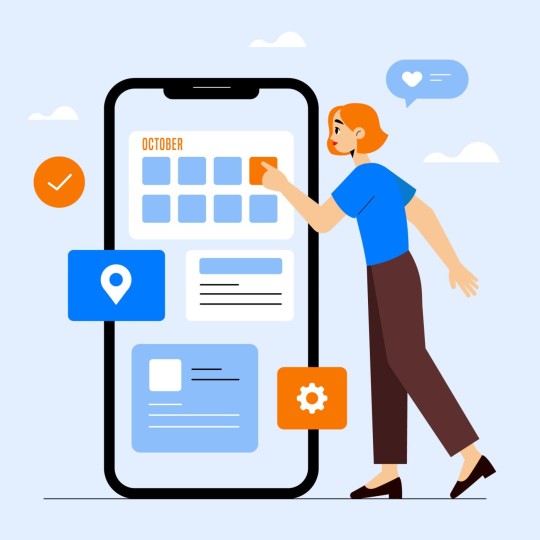
Can you imagine if WhatsApp is only available on one type of device, such as a mobile phone? It would be quite difficult to use the app as we rely on a variety of devices such as laptops, tablets, and smartwatches for communication. Fortunately, WhatsApp is available on all of these devices, making it a popular choice among communication apps.
If you have an idea for an app, it must be accessible across multiple devices and platforms, such as WhatsApp. To achieve this goal, it's highly recommended to partner with a leading Ionic app development company in Chennai. By doing so, you can leverage their expertise and experience to create a high-quality app that is compatible with multiple platforms.
What is Ionic?
Ionic is one of the best cross-platform development. It is a front-end framework used for developing cross-platform mobile, web, and desktop applications. It primarily focuses on the user interface and user experience of an application. However, it can also interact with backend services and databases to fetch and store data. So, while Ionic itself is a front-end framework, it can work with various back-end technologies to create full-stack applications. Making it a suitable framework for your app development project.
Why You Should Choose Absolute App Labs?
Absolute App Labs has extensive experience in utilizing the Ionic platform. Our team of highly skilled Ionic app developers in Chennai can create a customized UI for your app, ensuring it is available across multiple platforms simultaneously. We follow a clear app development process that allows us to deliver projects at the right time.
Consulting: Once you approach us, the first thing we do is provide consulting services through which we can understand what you need.
Planning: If anything needs to be created it must be planned first. We’ll determine how long it’ll take to create your app and the essential things needed for it.
Design: Then we’ll come up with several iterations of designs for your app. When you select the design we’ll start prototyping your app.
App Development: Once you are satisfied with the prototype, we’ll further develop your app features.
Testing: Once the app is ready our testing experts will conduct rigorous testing, to check if the app functions properly.
Launch: Once the testing process is complete. Will help you launch your app for several platforms.
We don’t just leave you after launch. We’ll provide you with essential support services to support you. If you are planning to create an app for your business, reach out to us today!
0 notes
Text
Exploring the Future: Mobile App Development Framework Trends in 2024
Introduction
The ever-evolving landscape of mobile app development is constantly shaped by technological advancements and user preferences. As we step into 2024, the mobile app development framework trends are set to redefine the way we create and experience mobile applications. In this comprehensive blog post, we'll explore the cutting-edge developments in the industry, highlighting the significance of hiring cross-platform app developers and the rising demand for React Native developers.
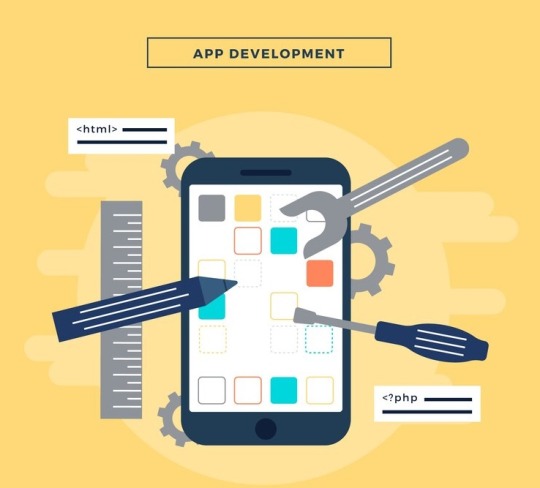
The Rise of Cross-Platform App Development
Cross-platform app development continues to gain momentum in 2024, offering a cost-effective and efficient solution for businesses targeting multiple platforms simultaneously. The ability to write code once and deploy it across various platforms, such as iOS and Android, makes cross-platform development an attractive choice for many businesses.
Why Hire a Cross-Platform App Developer?
Hiring a cross-platform app developer brings several advantages to the table. These developers specialize in frameworks like Flutter and Xamarin, allowing them to create applications with a single codebase. This not only accelerates the development process but also reduces costs associated with maintaining separate codebases for different platforms.
Flutter: Google's Darling Framework
Flutter, backed by tech giant Google, has emerged as a frontrunner in the cross-platform development arena. Its ability to deliver a native-like experience across various platforms has led to an increased adoption rate. Flutter's hot reload feature enhances developer productivity, enabling them to see real-time changes instantly.
Businesses looking to streamline their app development process and create visually appealing, high-performance applications should consider hiring cross-platform app developers proficient in Flutter.
Xamarin: The Microsoft Advantage
Microsoft's Xamarin continues to be a dominant force in cross-platform development. With a strong backing from a tech powerhouse like Microsoft, Xamarin allows developers to use C# for building applications that can run on iOS, Android, and Windows. This level of flexibility makes Xamarin a preferred choice for enterprises seeking a comprehensive solution.
Hire Cross-Platform App Developers for Seamless Integration
Cross-platform app developers play a crucial role in ensuring seamless integration of your app across various platforms. Their expertise in utilizing frameworks like Flutter and Xamarin guarantees a consistent user experience, regardless of the device or operating system.
React Native: The JavaScript Powerhouse
In the realm of native app development, React Native continues to be a popular choice. Developed by Facebook, React Native leverages the power of JavaScript to create high-performance, native-like mobile applications. The framework's modular and reusable components facilitate a more efficient development process.
Why Hire a React Native Developer?
Businesses seeking a native app development experience with the advantages of cross-platform development often turn to React Native. By hiring a React Native developer, you gain access to a pool of talent capable of building robust applications that run smoothly on both iOS and Android devices.
Frequently Asked Questions (FAQs) - Mobile App Development Framework Trends in 2024
Q1: What is the significance of cross-platform app development in 2024?
A1: Cross-platform app development allows developers to write code once and deploy it across multiple platforms, such as iOS and Android. This approach is cost-effective and efficient, making it an attractive choice for businesses aiming to reach a broader audience without doubling development efforts.
Q2: Why should I hire a cross-platform app developer?
A2: Hiring a cross-platform app developer brings numerous benefits, including accelerated development timelines and cost savings. These developers specialize in frameworks like Flutter and Xamarin, enabling them to create applications with a single codebase, reducing maintenance overhead and ensuring consistency across platforms.
Q3: What is Flutter, and why is it gaining popularity in 2024?
A3: Flutter is a cross-platform development framework backed by Google. Its popularity in 2024 is attributed to its ability to deliver a native-like experience across various platforms. The hot reload feature enhances developer productivity by allowing real-time changes, making it a preferred choice for businesses seeking visually appealing and high-performance applications.
Q4: How does Xamarin stand out in the cross-platform development landscape?
A4: Xamarin, supported by Microsoft, stands out due to its flexibility in using C# for building applications compatible with iOS, Android, and Windows. The framework is known for its seamless integration with the Microsoft ecosystem, making it an ideal choice for enterprises seeking a comprehensive cross-platform solution.
Q5: Why should businesses consider hiring React Native developers?
A5: React Native, developed by Facebook, combines the efficiency of JavaScript with native app development capabilities. Businesses should consider hiring React Native developers for creating high-performance applications that offer a native-like experience on both iOS and Android devices. The framework's modular and reusable components contribute to an efficient development process.
Q6: How do cross-platform app developers ensure seamless integration across various platforms?
A6: Cross-platform app developers leverage frameworks like Flutter and Xamarin to ensure seamless integration. Their expertise allows for the creation of applications with a consistent user experience across different devices and operating systems, eliminating compatibility issues.
Q7: Can React Native be used for both iOS and Android app development?
A7: Yes, React Native is designed to support both iOS and Android app development. This makes it an excellent choice for businesses looking to build cross-platform applications while maintaining a native look and feel.
Q8: What are the advantages of modular and reusable components in React Native?
A8: The modular and reusable components in React Native contribute to a more efficient development process. Developers can create building blocks that can be reused across different parts of the application, reducing redundancy and enhancing maintainability.
Q9: How can businesses stay ahead in the competitive mobile app development market in 2024?
A9: To stay ahead, businesses should consider embracing cross-platform development frameworks like Flutter and Xamarin or opt for React Native for a native app experience. Additionally, hiring skilled cross-platform app developers or React Native developers is crucial to turning innovative ideas into successful mobile applications.
Q10: What are the key possibilities for mobile app development in 2024?
A10: In 2024, the key possibilities for mobile app development include creating innovative and user-friendly applications using cutting-edge frameworks like Flutter, Xamarin, and React Native. Businesses can explore new avenues for reaching a wider audience and delivering optimal user satisfaction by harnessing the capabilities of these frameworks and the expertise of skilled developers.
#reactnative#flutter#cross platform#mobile app framework#ionic app development#mobile app development
0 notes
Text
0 notes
Text
#social media marketing services#ionic app development company#social media management services#flutter app development company#web development and design agency#digital marketing company#digital marketing company in indore#react native developer#react native app development company#react native development company#facebook ad campaign#facebook ads expert#facebook ad agency#google ads management services#mobile app development company#mern stack development company#application for android app development#ios app development company in india
0 notes
Text
Why Ionic Outperforms Flutter in 2024: 7 Data-Driven Reasons to Choose Ionic

In the competitive realm of hybrid app development, selecting the right framework is crucial for ensuring the success of your project. As of 2024, Flutter and Ionic are the two leading contenders in the field. While both frameworks have their strengths, an in-depth analysis of data and technical aspects reveals that Ionic may have the edge for many developers and businesses. Here’s why Ionic stands out, supported by compelling statistics and technical insights.
1. Hybrid Approach Enhances Performance
Performance is a pivotal factor in choosing a development framework. Ionic’s hybrid approach utilizes pre-existing plugins and technologies that enhance development efficiency while maintaining high performance. Ionic delivers a consistent 60 FPS across both desktop and mobile platforms, demonstrating its ability to offer smooth and reliable user experiences.
Flutter, known for its native compilation and custom rendering engine, also achieves 60 FPS. However, while Flutter’s hot reload feature can accelerate development, it doesn’t always translate to faster overall development time. Data suggests that Flutter's hot reload can reduce development time by up to 63%, but this benefit is often counterbalanced by the complexity of the app being developed.
2. Superior UI Customization and Flexibility
UI design flexibility is another critical factor where Ionic excels. Ionic leverages web technologies such as HTML, CSS, and JavaScript, providing developers with a comprehensive library of pre-designed components. This allows for highly customizable and responsive UIs, with standard-based web components that can be styled to resemble native elements, ensuring a consistent look and feel across various platforms.
Flutter, in contrast, employs its own rendering engine and offers a range of pre-designed widgets. While these widgets adhere to Material Design and Human Interface guidelines and provide extensive customization options, they may not offer the same level of flexibility as the standard web components used by Ionic. For businesses seeking a tailored UI with rapid implementation, Ionic’s approach offers a significant advantage.
3. Enhanced Code Portability and Maintenance
Code portability is a crucial aspect of modern app development, and Ionic’s use of web technologies facilitates this with ease. Developers can deploy a single codebase across mobile, desktop, and Progressive Web Apps (PWA), simplifying code maintenance and updates. This approach reduces the time and effort required to manage different platform versions.
Flutter also supports cross-platform code sharing but relies on Dart, which is less widely adopted than JavaScript. Although Flutter's single codebase approach is effective, developers may face a steeper learning curve with Dart, potentially impacting the speed of development and onboarding.
4. Developer-Friendly Ecosystem
The developer experience is greatly influenced by the ecosystem surrounding a framework. Ionic’s ecosystem is designed to enhance developer convenience, offering extensive documentation and compatibility with popular JavaScript frameworks such as AngularJs , React, and Vue. This integration allows developers to leverage their existing skills and tools, facilitating faster development and maintenance.
Flutter requires proficiency in Dart, a less common language compared to JavaScript. Although Flutter provides comprehensive documentation, the learning curve associated with Dart can be a barrier for new developers or those transitioning from other languages. Ionic’s ecosystem, with its focus on familiar technologies, presents a more accessible option for many developers.
5. Accelerated Development and Deployment
Speed is critical in the app development lifecycle. Ionic’s hybrid approach and efficient use of web technologies contribute to quicker development cycles. With its vast library of components and plugins, developers can rapidly assemble and deploy applications, minimizing the need for extensive custom coding.
Flutter’s hot reload feature is designed to speed up development by allowing real-time updates without restarting the app. While this feature is beneficial, the overall speed of development can still be affected by the complexity of the application and the need for frequent updates. Ionic’s streamlined approach often results in faster development and deployment times.
6. Cost-Effective Development
Cost considerations are always at the forefront of app development decisions. Ionic’s utilization of web technologies and pre-existing plugins often results in more cost-effective development compared to Flutter. The use of JavaScript and established web frameworks typically leads to lower development costs, as teams can build on their existing knowledge and tools.
In contrast, Flutter’s development costs may be higher due to the need for specialized Dart expertise and potentially longer development times for complex applications. Although Flutter can deliver high-performance apps, the associated costs can be a significant factor for businesses operating within tight budgets.
7. Established Community and Support
Community support and available resources play a crucial role in the development process. Ionic’s longer presence in the market has fostered a robust ecosystem of resources, tutorials, and community support. This established network provides valuable assistance for troubleshooting, learning, and keeping up with the latest advancements.
While Flutter is supported by a rapidly growing community and benefits from Google’s backing, it is relatively newer compared to Ionic. As a result, the community support and resources for Flutter are still expanding. For developers seeking a well-established support network, Ionic’s longstanding presence offers a substantial advantage.
Ionic’s Technical Superiority
Ionic excels not only in performance and development efficiency but also through its robust technical features:
Plugin Integration: Ionic utilizes Cordova and, more recently, Capacitor plugins to access host operating system features such as Camera, GPS, and Flashlight. This integration allows developers to build applications that leverage native device functionalities while using a unified codebase.
Comprehensive Framework: Ionic supports building apps that can be customized for a range of platforms, including Android, iOS, Windows, Desktop (with Electron), and modern browsers. This versatility is facilitated through Ionic’s build tools and simplified command-line interface (CLI), which streamlines the app-building and deployment process.
Extensive UI Components: Ionic includes a wide array of mobile components, typography, interactive paradigms, and an extensible base theme. Web Components used in Ionic provide custom elements and methods for interaction. Notable components like virtual scroll allow for smooth scrolling through extensive lists, while tabs create native-style navigation with history state management.
Development Tools: Ionic offers services that enable code deploys and automated builds. Although its own IDE, Ionic Studio, was discontinued in 2020, the CLI remains a powerful tool for project creation, plugin management, push notifications, and native binary generation.
Conclusion
In conclusion, while both Flutter and Ionic offer distinct benefits for hybrid app development, data and technical insights indicate that Ionic may be the preferable choice for many projects. With its hybrid approach, superior UI customization, code portability, and developer-friendly ecosystem, Ionic presents a compelling option for businesses looking to develop high-performance, cost-effective applications.
If you're considering developing a new application or updating an existing one, hiring Ionic developers could significantly enhance your project’s success. Ionic’s strengths in development efficiency and technical versatility make it a robust and effective choice in the competitive landscape of hybrid app development.
By choosing Ionic, and with the expertise of skilled Ionic developers, you can harness a framework with a proven track record, ensuring efficient development and deployment processes. For a well-established support network and a streamlined development experience, Ionic is the framework to consider.
#Flutter#Ionic#Mobile App Development#Cross Platform Apps#App Development#Hybrid Apps#IonicFramework#Flutter VS IONIC#Tech Comparison#App Performance#Dart Programming#JavaScript Frameworks#Mobile Development Trends#Capacitor#Cordova Plugins
0 notes
Text
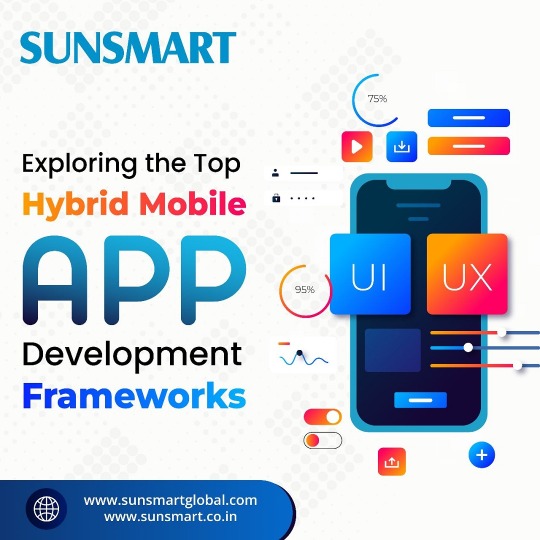
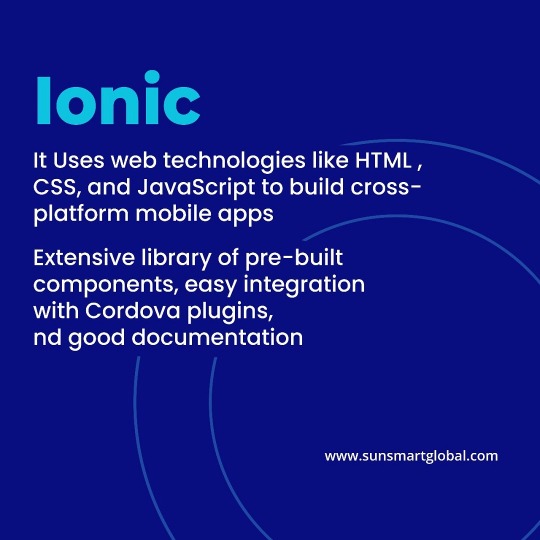
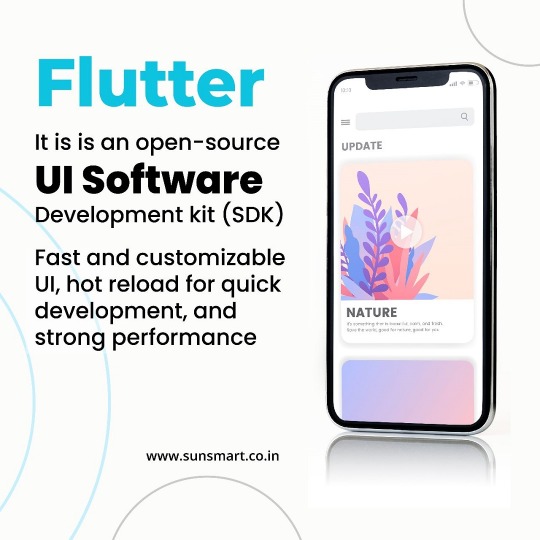
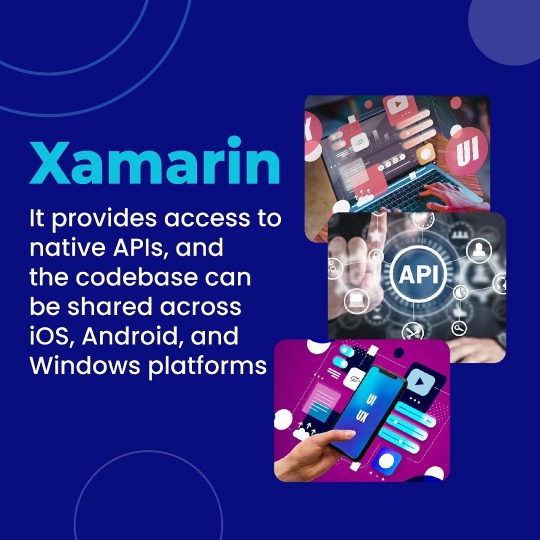

#hybrid app development#mobile app development#android#ios#flutter#ionic#xamain#phonegap#software development
0 notes
Text
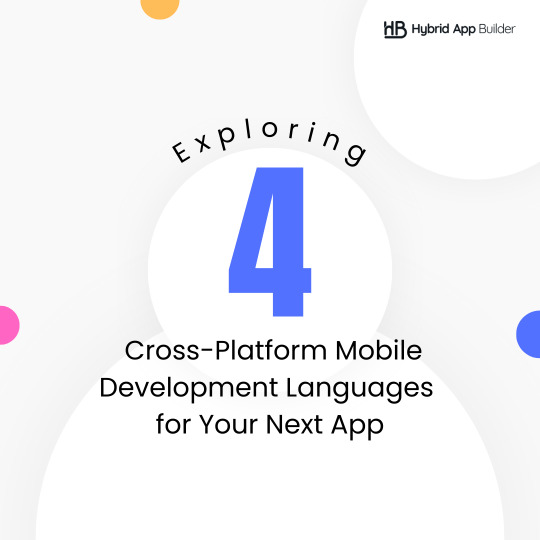
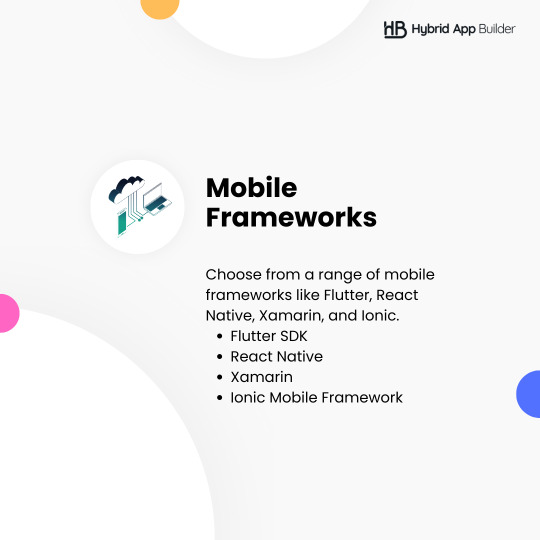
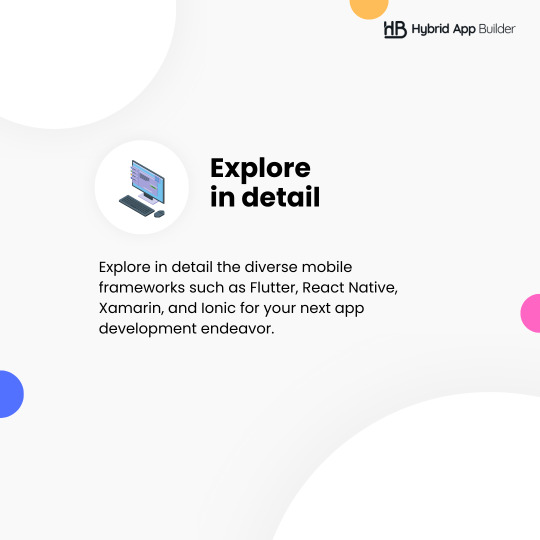
Dive into the World of Cross-Platform App Development with These 4 Powerful Languages! 📱
Discover the Versatility and Efficiency of Flutter, React Native, Xamarin, and Ionic. Start Building Your Next App Today!
#cross platform development#cross platform#development#mobile app development#mobile apps#language#efficiency#flutter#react native#xamarin#ionic
1 note
·
View note
Photo

Ionic is a popular framework used for building mobile and web applications using HTML, CSS, and JavaScript. To run an Ionic project, we need to use a tool called the Ionic Capacitor. In this blog, we will guide you through the process of installing and setting up the Ionic Capacitor to run your first Ionic project.
Step 1: Install Node.js Before we can start working with Ionic, we need to install Node.js, which is a JavaScript runtime environment. You can download the latest version of Node.js from the official website https://nodejs.org/en/download/ and install it on your machine.
Step 2: Install Ionic CLI Once Node.js is installed, we can proceed to install the Ionic CLI. Open the command prompt (or terminal) and run the following command:
npm install -g @ionic/cli
This command will install the Ionic CLI globally on your machine. You can verify the installation by running the command:
ionic --version
This will display the version of the Ionic CLI that you have installed.
Step 3: Create a new Ionic project With the Ionic CLI installed, we can create a new Ionic project. To create a new project, run the following command:
ionic start
This will prompt you to give a name for your project. Enter a suitable name for your project and press Enter. Next, you will be prompted to select the JavaScript framework to use for your project. You can choose either Angular or React. For this tutorial, we will choose Angular.
After selecting the framework, you will be prompted to choose a starter template. There are various options available, but for this tutorial, we will choose the blank starter template.
Once the project is created, navigate to the project directory using the command:
cd "your project name"
Step 4: Run the project in the browser To test if the Ionic project is working, run the following command in the command prompt:
ionic serve
This will compile and serve the project and open it in the default web browser.
Congratulations, you have successfully created and run your first Ionic project using the Ionic Capacitor. In the next blog, we will guide you through the process of running your Ionic project on Android.
#ionic framework#ionic#ionic cap#mobile app development#javascript#angular#react#cross platform development
1 note
·
View note